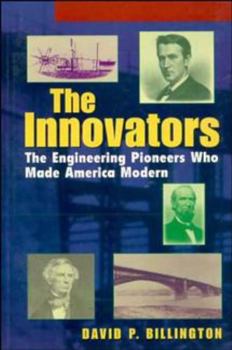The Innovators, College: The Engineering Pioneers Who Made America Modern
Select Format
Select Condition 
Book Overview
A richly illustrated introduction to the engineering triumphs that made America modern
In this age of microchips and deep space probes, it's hard to imagine life before electricity or passenger trains. An astonishing series of engineering innovations paved the way to the twentieth century, and transformed America into the world's mightiest industrial power. The Innovators tells the exciting story of the engineering pioneers whose discoveries so dramatically altered commerce, industry, and world history. The book takes readers into the workshops of America's early engineering geniuses, explaining how they came up with their ideas and later applied them in the marketplace. Devotees of history and technology will appreciate the finely drawn profiles of America's technical wizards, from the famous--including Robert Fulton, the inventor of the steamboat; Samuel F.B. Morse, the inventor of the telegraph; and Thomas Edison, inventor of the first electrical power network--to the lesser known, such as J. Edgar Thompson, who built the Pennsylvania Railroad.
From the author of the critically acclaimed The Tower and the Bridge Features over 80 illustrations of the engineers and their inventions





